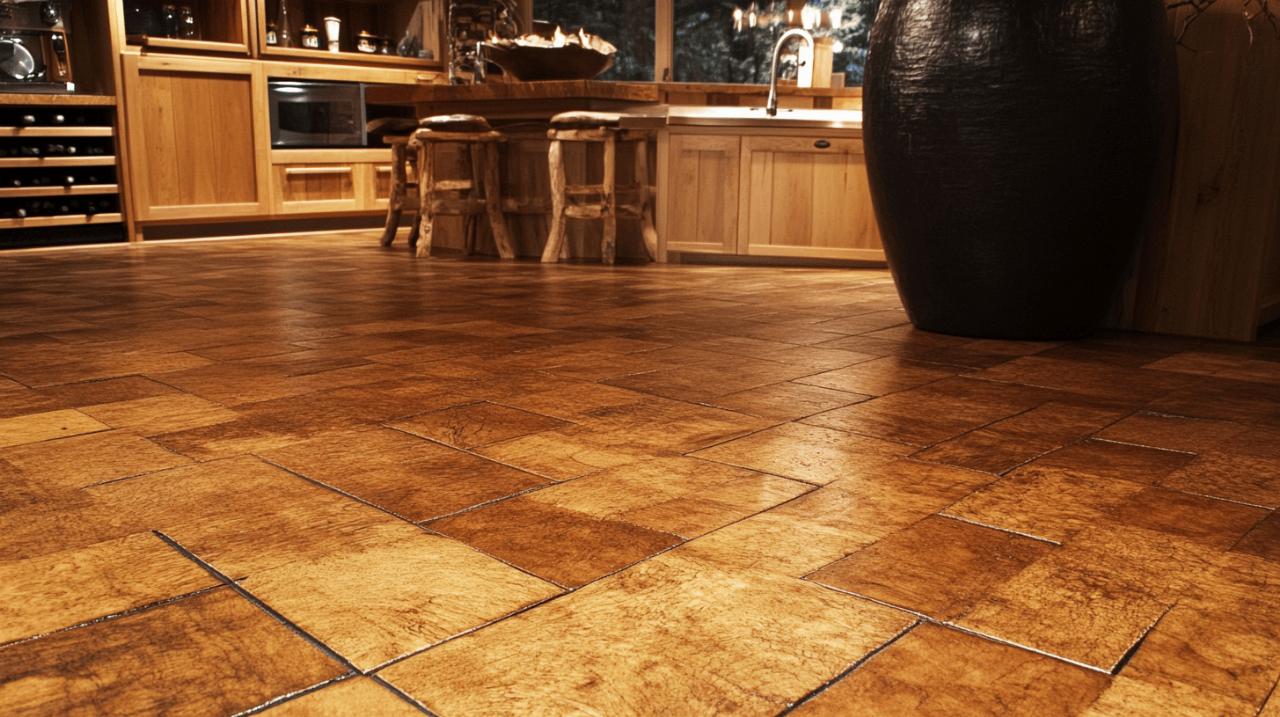When considering home renovations, flooring plays a crucial role in creating a healthy, sustainable living space. Eco-friendly flooring options not only reduce environmental impact but also contribute to better indoor air quality and overall home comfort. More homeowners are turning to sustainable materials as awareness grows about the importance of environmentally responsible choices in home design.
Natural wood flooring options
Wood flooring remains one of the most popular choices for homeowners seeking both beauty and sustainability. While exploring different flooring solutions for your home, you might come across various Tiendas de Decoracion that offer eco-friendly options. These decoration shops specialise in sustainable materials that can transform your living space while minimising environmental impact.
Sustainably harvested hardwoods
FSC certified hardwoods represent one of the most responsible choices for natural wood flooring. This certification ensures the timber comes from forests managed according to strict environmental, social, and economic standards. Oak and pine are particularly sustainable options, requiring less time to mature than some exotic hardwoods. The natural beauty of these materials adds warmth to any room while providing excellent durability that can last generations with proper care.
Professional installation of hardwood flooring is essential for maximising its longevity and performance. Easter Flooring Limited, based in Sidcup, offers expertise in sustainable wood flooring installation, ensuring your investment maintains its beauty for years to come. Their selection includes various finishes from oiled to lacquered, with thicknesses ranging from 10mm to 20mm to suit different requirements.
Reclaimed timber flooring solutions
Reclaimed wood flooring represents perhaps the most environmentally friendly timber option available. Sourced from old buildings, barns, and other structures, these materials give new life to wood that might otherwise be discarded. Beyond their environmental benefits, reclaimed wood floors add unique character and history to your home with their distinctive patina and grain patterns developed over decades of previous use.
An additional advantage of reclaimed timber is its stability. Having already gone through years of natural expansion and contraction cycles, reclaimed wood is less likely to warp after installation. This makes it not only an eco-conscious choice but also a practical one for homeowners seeking long-term flooring solutions with minimal maintenance requirements.
Cork flooring benefits
 Cork flooring represents one of the most renewable flooring materials available today. Harvested from the bark of cork oak trees primarily in Portugal, this material can be collected without harming the tree every 9 to 12 years. Remarkably, the same tree can be harvested for up to 200 years, making cork an exceptionally sustainable resource. The harvesting process allows the trees to continue absorbing carbon dioxide throughout their lifespan, contributing to reduced greenhouse gas levels.
Cork flooring represents one of the most renewable flooring materials available today. Harvested from the bark of cork oak trees primarily in Portugal, this material can be collected without harming the tree every 9 to 12 years. Remarkably, the same tree can be harvested for up to 200 years, making cork an exceptionally sustainable resource. The harvesting process allows the trees to continue absorbing carbon dioxide throughout their lifespan, contributing to reduced greenhouse gas levels.
Thermal insulation properties
One of the most significant advantages of cork flooring is its exceptional thermal insulation capabilities. The cellular structure of cork contains millions of air-filled chambers that trap heat, creating a natural barrier against cold floors. This insulation property makes cork flooring particularly valuable for improving home energy efficiency, especially during colder months. Floor insulation is increasingly recognised as essential for creating a healthy, efficient and comfortable home environment, with cork offering this benefit inherently.
The insulating qualities of cork flooring contribute to reduced heating costs and enhanced comfort underfoot. Unlike stone or ceramic tiles that can feel cold, cork maintains a pleasant temperature year-round. This natural warmth makes it especially suitable for bedrooms, living rooms, and other spaces where comfort is paramount. The direction and layout of cork flooring, much like with parquet styles, can influence how light interacts with the floor and affects the perception of space within a room.
Natural antimicrobial qualities
Cork contains a natural substance called suberin, which gives it remarkable resistance to mould, mildew, and other microorganisms. This inherent antimicrobial property makes cork an excellent choice for allergy sufferers and those concerned about indoor air quality. Unlike synthetic flooring materials that may release volatile organic compounds, cork contributes to a healthier indoor environment by naturally inhibiting the growth of potential allergens.
The antimicrobial qualities extend cork’s durability in moisture-prone areas. While not fully waterproof like some vinyl options, cork’s natural resistance to mould makes it suitable for kitchens and bathrooms when properly sealed. This versatility, combined with its sustainability credentials, makes cork an increasingly popular choice for homeowners seeking to create healthier living spaces with minimal environmental impact. Easter Flooring Limited offers various cork flooring options that combine these health benefits with attractive designs suitable for contemporary home styling.